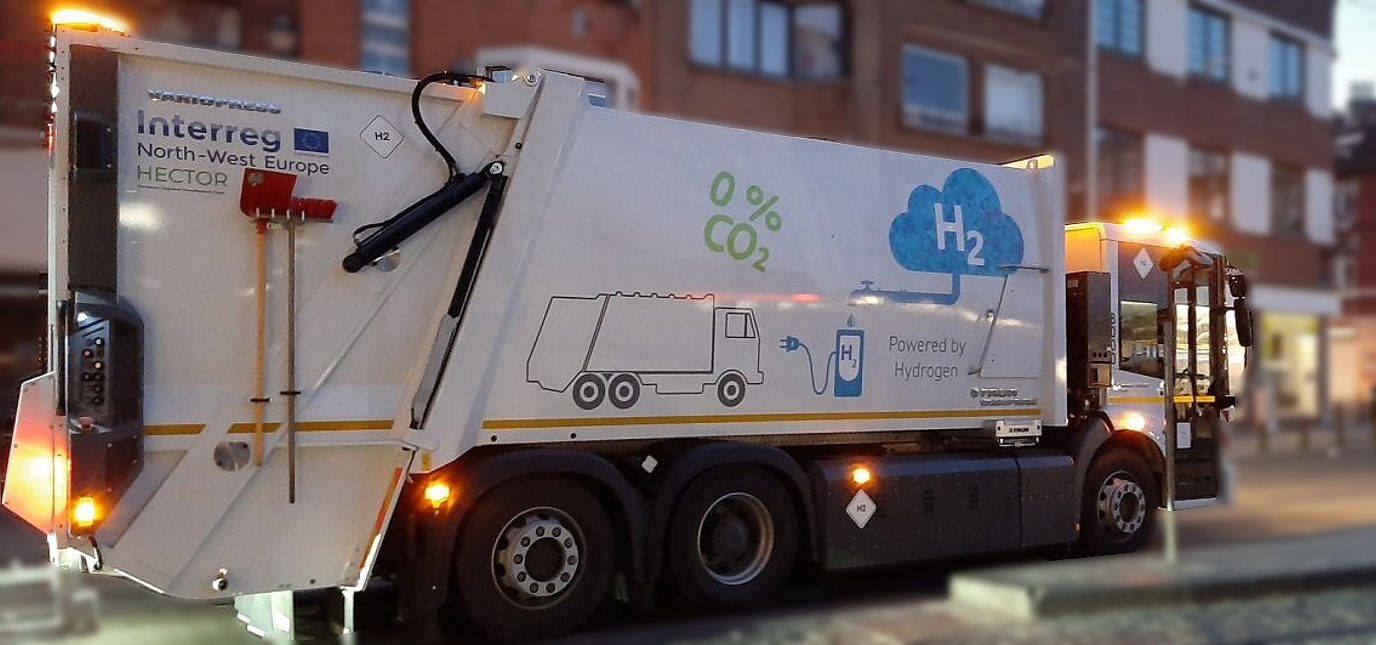
HECTOR
Case Study
The Challenge
The HECTOR Project (Hydrogen Waste Collection Vehicles in Northwest Europe), an Interreg initiative led by Aberdeen City Council showcases the effectiveness of fuel cell waste trucks in reducing road transport emissions across seven pilot sites in Northwest Europe. Cenex was tasked with capturing valuable insights from the project’s partners, the goal was to distil this knowledge into a comprehensive handbook that could guide other fleets interested in trialling hydrogen refuse collection vehicles (H2RCVs).
Despite hindrances, including COVID-related disruptions and technology integration issues causing delays. Cenex embraced the challenge of extracting crucial learnings from project partners to create a valuable resource for those interested in implementing fuel cell waste trucks.
The Development
Cenex conducted extensive interviews with project partners, delving into the project’s intricacies, vehicle details, and deployment processes. Leveraging this insight, Cenex crafted the HECTOR Handbook, designed to provide practical advice and guidance for fleets embarking on the journey of trialling hydrogen refuse collection vehicles. The handbook serves as a comprehensive resource applicable to any zero-emission refuse collection vehicle trial.
The Result
The HECTOR handbook, compiled by Cenex, stands as a comprehensive guide for fleet operators intending to trial or deploy hydrogen refuse collection vehicles. It refines the experiences and learnings from the Hector Project, offering insights into vehicle specification, procurement, training, maintenance, and real-world operational performance.
This invaluable resource equips organisations with the knowledge needed to navigate the complexities of implementing fuel cell waste trucks, contributing to the reduction of road transport emissions.








